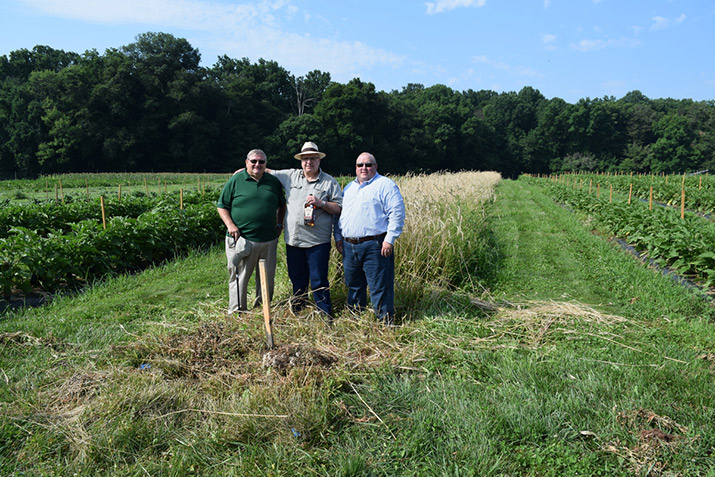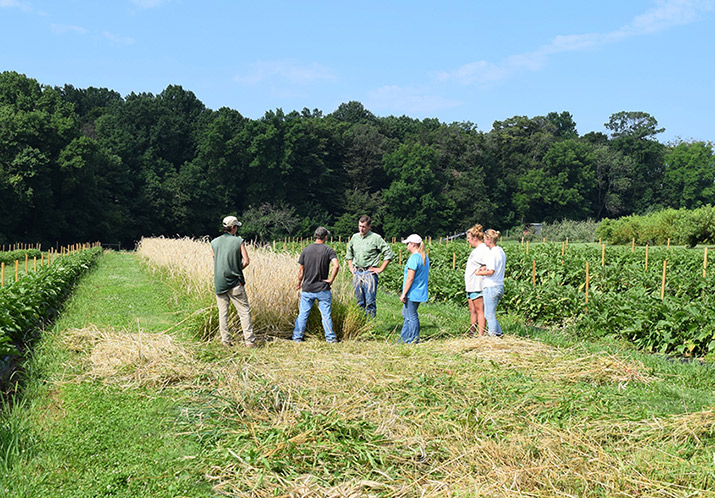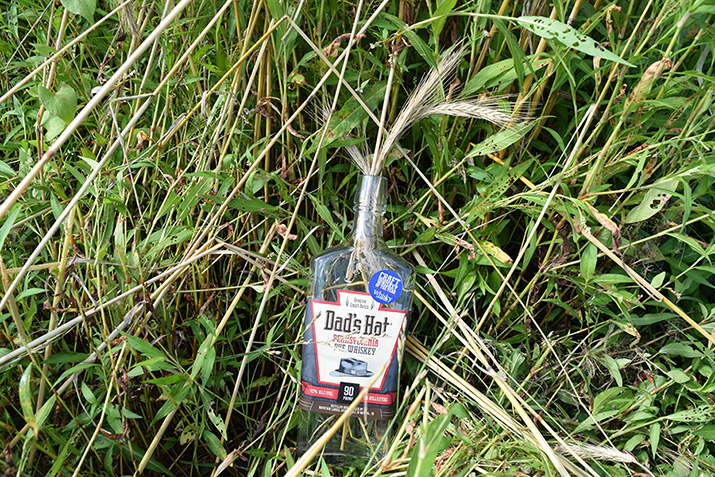Farm to Bottle Whiskey Brings Back Lost Variety of Rye

Credit: Delaware Valley University. From left: Delaware Valley University Chair of Agribusiness John Urbanchuk, Dad’s Hat Founder and Distiller Herman C. Mihalich, and Delaware Valley University Dean of Agriculture and Environmental Sciences Dr. Broc A. Sandelin stand in a field of Rosen rye on the University’s campus.
As craft whiskey producers look for ways to improve their products, many are looking to the past, bringing back varieties of grain that have been largely lost from the country’s fields. Dad’s Hat, a Bristol, Pennsylvania-based craft whiskey producer is working with Delaware Valley University to bring back Rosen rye, a variety that was widely grown in the U.S. about 100 years ago. The University harvested a batch of Rosen rye on July 16 that Dad’s Hat will use to create a small, test batch of whiskey this summer.
“I don’t think anyone else is growing this type of rye in Pennsylvania,” said John Urbanchuk, the University’s chair of agribusiness. “The purpose of this project is to revive a heritage variety of rye.”
Rosen rye started to disappear from Pennsylvania’s fields partly because of Prohibition.
“Rye whiskey was once a primary distilled spirit of the U.S.,” said Urbanchuk. “When Prohibition came, that pretty much shut down the industry.”
Urbanchuk said that by the time Prohibition ended rye whiskey had fallen out of favor with many Pennsylvania consumers. Recently, rye whiskey has made a comeback as a popular drink.
Dad’s Hat Founder and Distiller Herman C. Mihalich approached Urbanchuk about growing Rosen rye on campus after Urbanchuk toured his distillery.
“I am very excited to try some of this Rosen rye in a small batch at the distillery,” said Mihalich. “The best Pennsylvania Rye Whiskeys of the past were made with Rosen rye, and we are doing our best to make the best rye whiskeys available today.”
In 2015, Urbanchuk obtained less than a handful of seeds from a USDA seed repository for the project. By planting and harvesting this tiny amount of seeds in greenhouses and high tunnels on campus, the University was able to get enough seeds to plant the batch that sprouted up this year. From the start, with that tiny amount of seeds, the project has provided a learning experience for DelVal students.

Credit: Delaware Valley University. Delaware Valley University Farm Manager Scott Smith talks with students as they harvest the first Rosen rye to be grown outside on the University’s campus.
“The biggest tasks the students have are preparing the ground for growing and planting and harvesting,” said Urbanchuk. “The whole effort has to do not just with planting the seed, but how to identify diseases and pests that might impact the crop. It’s a good practical example that is a little unusual for them to get to see.”
Mihalich visited campus to see the harvest of the first batch of Rosen rye to be grown outside on the University’s campus. What he doesn’t use for his first test batch of Rosen rye whiskey will be dried out so that the seeds can be preserved for the next planting.
Urbanchuk said he hopes to create many more partnerships like the one with Dad’s Hat.
“We’re looking to build relationships with the commercial sector,” said Urbanchuk. “This project ties in agriculture and agribusiness, and it’s a great practical example of a value-added product.”

Credit: Delaware Valley University. Dad’s Hat, a local, craft whiskey company will create a special test batch using Rosen rye grown by Delaware Valley University.